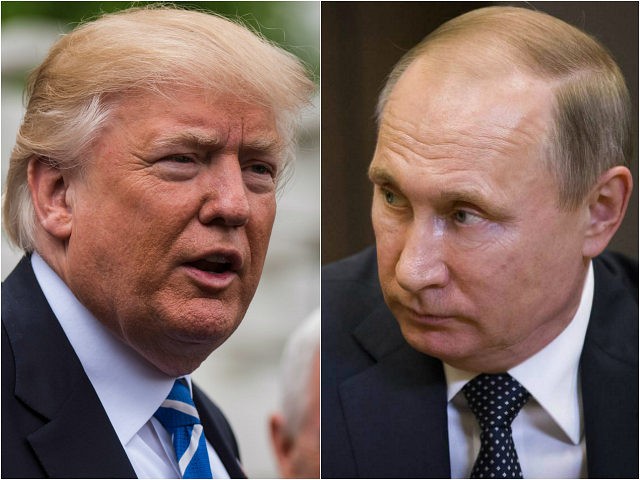On Tuesday, President Donald Trump had his first conversation with Russian President Vladimir Putin since the U.S. attack on a Syrian airbase in early April. There are reportedly plans in the works for a face-to-face meeting on the sidelines of the G20 summit in Germany in a few weeks.
The White House described Trump’s telephone conversation with Putin as “very good,” while the Kremlin said it was “businesslike and constructive.”
A more comprehensive ceasefire in Syria and the establishment of safe zones for refugees were reportedly among the topics discussed. Reuters quotes a senior Trump administration official saying Putin requested the call, with the goal of presenting his ideas for resolving the Syrian conflict. There was also some discussion between the two presidents about the situation in North Korea.
“The aim is to create the conditions for the launch for a real resolution process in Syria. This means that the Russian foreign minister and U.S. secretary of state will effectively inform the leaders about progress in this direction,” read a statement from the Kremlin.
The statement went on to say that Putin “called for restraint and for the level of tension to be reduced” on the Korean peninsula.
ABC News notes that the Kremlin stated that Trump and Putin “agreed to continue their telephone contacts and spoke in favor of arranging a personal meeting during the G-20 Summit in Hamburg on July 7–8.” However, the White House said that Trump and Putin merely acknowledged they would both be present at the G-20 summit, without committing to a meeting.
The UK Independent quotes analysts who found it somewhat puzzling that neither White House nor Kremlin statements on the Trump-Putin call mentioned the issue of chemical weapons in Syria.
“No UN Security Council resolution, no international investigation, no warnings against further use, no reference to any of the parties in the Syrian civil war,” said former U.S. ambassador-at-large Dr. Steve Sestanovich, now a senior fellow at the Council on Foreign Relations.
American Security Project senior fellow Matthew Wallin added that establishing safe zones without resolving the core issues of the Syrian civil war is a recipe for “permanent refugee camps with no sustainable economy, and likely full of hunger, suffering, and recruiting opportunities for terrorists.”

COMMENTS
Please let us know if you're having issues with commenting.